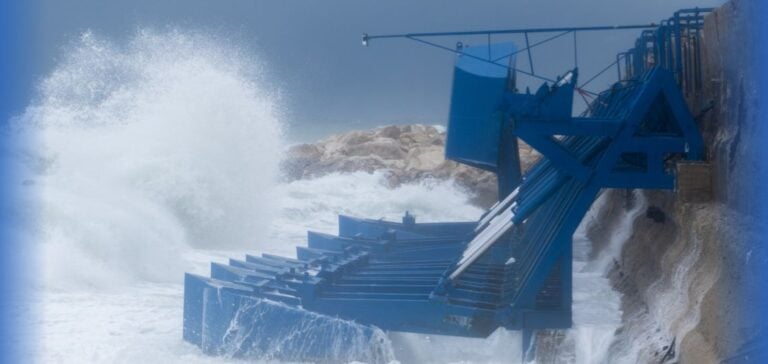Eco Wave Power Global AB’s EWP-EDF One project has demonstrated its efficiency in Israel at the Jaffa Port site. This innovative system produced uninterrupted electricity for an entire week in December 2024, even under stormy weather conditions, with waves averaging 1.6 meters in height and achieving a peak power output of 26 kW.
This success highlights the robustness of Eco Wave Power’s technology and its potential to meet the growing demand for renewable energy. By harnessing wave motion, the solution offers a predictable and continuous alternative to intermittent sources such as solar and wind energy, particularly in coastal areas.
A resilient and innovative technology
Eco Wave Power’s system relies on floaters attached to existing coastal infrastructure, such as piers or jetties. This approach significantly reduces installation costs and minimizes environmental impact. Recent trials at Jaffa Port confirmed the technology’s ability to maintain stable operations, even under extreme weather conditions.
For Inna Braverman, founder and CEO of Eco Wave Power, this success marks a significant milestone: “The performance of our EWP-EDF One project proves that our technology can deliver clean energy 24/7, regardless of weather conditions.”
Promising international prospects
The success at Jaffa Port is part of Eco Wave Power’s broader international expansion strategy. In the United States, the company is preparing to launch an ambitious project at the AltaSea Port in Los Angeles, in partnership with Shell MRE. This project, which has recently received federal approval from the U.S. Army Corps of Engineers, is expected to be operational by the first quarter of 2025.
Meanwhile, the company is advancing strategic projects in Taiwan and Portugal. In Taiwan, a partnership with I-KE is exploring opportunities to integrate wave energy into a dynamic local environment. In Portugal, Eco Wave Power is focused on installing its technology in a challenging yet promising maritime setting for renewable energy development.
Political and economic stakes
The EWP-EDF One project highlights the opportunities offered by wave energy in the context of global energy transition. Israel, by supporting innovative technologies, is strengthening its role as a leader in renewable energy solutions. The collaboration with EDF Renewables IL, which co-funded this project alongside the Israeli Ministry of Energy, illustrates how public-private partnerships can accelerate the development of sustainable solutions.
On an international scale, these technological advances could play a key role in reducing dependence on fossil fuels while providing resilient energy solutions in the face of climatic and economic challenges.






















